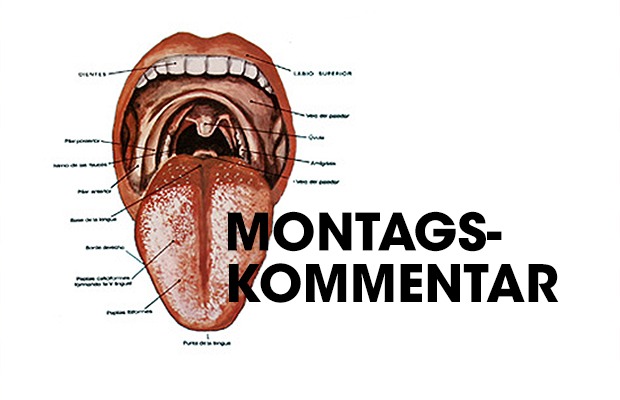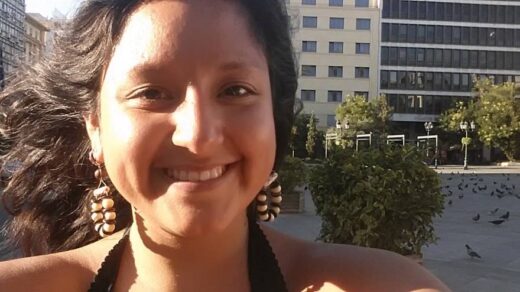Anis Ari spent her last Saturday going to the anti-racism rally and what she discovered more than just shocked her. From privileged white people dancing to drinking to openly displaying their ignorance, there were quite a few gag-worthy moments.

Die Deutsche Version gibt’s unten.
“No justice, no peace” is the slogan that echoed through the streets of Berlin at this Saturday’s Black Lives Matter protest. In the wake of George Floyd’s death, an African-American man who was murdered by the Minneapolis police, people all over the world are joining the Black Lives Matter movement and are protesting police brutality and the racist treatment of Black people; and Germany is certainly no exception to that. However, this massive support by the German public should definitely be taken with a spoon full of good old-fashioned scepticism.
Mirror, Mirror on the Wall, Who’s the #Wokest of Them All?
If you open “The Gram” these days, chances are you will probably be confronted with selfies of (white) Germans going to the Black Lives Matter protests, standing in front rows, taking up big spaces and hashtagging their pictures with #BLM, #GeorgeFloyd or #Icantbreathe. The irony is so thick that one could literally cut it with a knife. The BLM protests in Germany have seemingly morphed into this, quite frankly, ugly double standard that is impossible to ignore. While (white) Germans protest for the Black lives in America, which is valid, what about Black* lives or POC* (People of Color) lives in Germany? What about the Oury Jallohs, the Ferhat Unvars and Mahmud Azhars and the endless other lives whose names we do not know that drown in mediterranean waters? Black lives matter not only in the U.S. but everywhere and they are undeniably at risk everywhere. Activism is not a trend but a fight for survival for so many BIPOC*s (Black Indigeneous POC) and racism is not constricted to one place but a structural system thriving all over the world.
F*U* 2
The best example would be our university’s very own campus formation and system. The FU is placed in one of Germany’s most diverse cities, yet that diversity is not really reflected in our everyday campus life, is it? The teachers faculty is filled with white people and so are most student organized groups. Hence, university life and activism for BIPOC*s can be a jarring experience. How many of our students are aware or made aware of the racially motivated murder of Mahmud Azhar, a student and member of the scientific faculty at the FU in 1990?
I will never forget being in a Rise up 4 Rojava group, as the only Kurdish person, and being dismissed when I raised my concern that giving a group full of entitled, privileged white people traditional Kurdish dancing lessons, while there are Kurdish people literally fleeing ethnic cleansing and death, would be a bad idea and of poor taste. And this is just one instance where the voice of a BIPOC* was drowned in the white noise of the general FU crowd. The fact that I, as a Kurdish, non-Black person, am writing an article about mainly Black issues because no other Black person could apparently be found to do it, showcases how deep racism runs through our institutions and our university. No matter how politically aware the FU and its students want to present themselves; the university is still a white person’s space. So before we start pointing fingers to the U.S. and calling out their trash, how about taking care of ours first and a good way to start, is with our own university.
Deutsche Version
“No justice, no peace” schallt am Samstag von der Black Lives Matter Demo durch die Straßen Berlins. Anlässlich des Todes von George Floyd, einem Afroamerikaner, den Polizisten in Minneapolis ermordeten, protestieren weltweit mehr Menschen mit der Black Lives Matter Bewegung hinzu. Sie protestieren gegen Polizeigewalt und den Rassismus, den Schwarze tagtäglich erleben – auch in Deutschland. Aber die Proteste sollten mit einer gesunden Portion Skepsis betrachtet werden.
Spieglein, Spieglein an der Wand, wer sind die #Wokesten im Land?
Öffnet man derzeit Instagram, stehen die Chancen nicht schlecht, das einem dort die Selfies weißer Deutschen auf Black Lives Matter Demos entgegenspringen. Sie stehen in den ersten Reihen, nehmen groß Raum ein und taggen ihre Bilder mit #BLM, #GeorgeFloyd oder #Icantbreathe. Die ironiegeschwängerte Luft ist so dick, man könnte sie mit einem Messer zerschneiden.
Die BLM Demonstrationen in Deutschland mischten sich mit dieser, ehrlich gesagt hässlichen Doppelmoral, die nur schwer zu ignorieren ist. Während (weiße) Deutsche für Schwarze in den USA protestieren – was absolut legitim ist -, wie steht es eigentlich um Schwarze und POC* (People of Color) in Deutschland? Was ist mit den Oury Jallohs, den Ferhat Unvars und Mahmud Azhars und den vielen anderen, die im Mittelmeer ertrinken und deren Namen wir nicht mal kennen? Schwarze Menschen zählen nicht nur in den USA, sondern überall und sind auch weltweit von Rassismus betroffen. Aktivismus ist kein Trend, sondern ein Kampf ums Überleben für so viele BIPOC*s (Black and/or Indigeneous POC). Rassismus ist nicht auf einen Ort begrenzt, sondern ein strukturelles System auf der ganzen Welt.
Das weiße Rauschen an der FU
Das beste Beispiel ist unser eigener Campus. Die FU steht in einer der diversesten Städte Deutschlands, dennoch spiegelt sich das im Unialltag nicht wieder, oder? Die Dozierenden sind fast ausschließlich weiß und so sind es auch die meisten Fachschaften und Initiativen. Auch deshalb kann das Leben an der Uni und Aktivismus dort für BIPOC*s anstrengend sein. Wie viele der vielen FU-Studis wissen denn zum Beispiel um den rassistisch motivierten Mord an Mahmud Azhar, einem Studenten und wissenschaftlichen Mitarbeiter im Jahr 1990?
Ich werde nie vergessen wie es sich angefühlt hat, in einer Runde der Rise up for Rojava-Gruppe als einzige kurdische Person zu sitzen und ignoriert zu werden. Ignoriert, als ich meinte, dass es eine schlechte Idee sei, wenn eine Gruppe privilegierter weißer Studis einen kurdischen Tanz-Workshop plant, während Kurden vor ethnischen Säuberungen und dem Tod flüchten. Das ist nur ein Beispiel, in dem die Stimmen von BIPOC* im weißen Rauschen der FU untergehen. Dass ich als Kurdin und nicht-Schwarze einen Artikel über vorwiegend Schwarze Anliegen schreibe, weil anscheinend keine andere Schwarze Person gefunden werden konnte, die es tut, zeigt nur, wie tief verwurzelt Rassismus und seine Auswirkungen auch in der FU stecken. Egal wie sensibilisiert sich die FU und ihre Studierenden präsentieren wollen; die Uni ist immer noch ein Ort weißer Menschen. Bevor wir also mit dem Finger auf die USA zeigen und deren Fehler kritisieren – wie wäre es, lieber vor der eigenen Institutstür zu kehren und bei unserer Universität anzufangen.
Deutsche Übersetzung: Julian von Bülow



